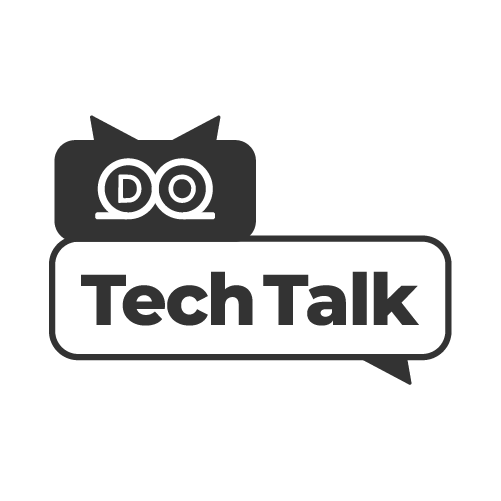Almost no one with any involvement in the cryptocurrency space has at least heard of DeFi.
While decentralization is central to the cryptocurrency world, no other area embraces it quite like DeFi. DeFi’s main aim is to offer users decentralized, more efficient alternatives to traditional financial services like lending, storage, and more.
Why do we need DeFi?
Well, for the same reason we need blockchain technology: there is a serious lack of privacy and transparency in the modern world. Decentralized finance (DeFi) is designed to remove the need for middlemen in both business and personal finance, offering secure and anonymous financial services.
What is DeFi in Crypto?
Decentralized finance, commonly referred to as DeFi, is one of the fastest-growing areas in the cryptocurrency space. is a fast-growing sector of the cryptocurrency industry. It is a financial system that operates on a network without central control. DeFi differs from a centralized financial system in that it uses smart contracts on blockchain technology, allowing users to carry out financial transactions without having to rely on central institutions.
DeFi is a new type of financial system that is not controlled by central financial institutions. Instead, it relies on decentralized networks that allow complex financial transactions to be carried out without intermediaries. This allows greater access to capital and financial services, as well as trustless transactions and direct negotiation of interest rates.
DeFi allows users to lend, borrow, trade and invest in digital assets without having to go through traditional banking systems. This allows users to access financial products like loans, insurance, or derivatives directly, without needing to rely on a bank or traditional financial institution.
How does Decentralized Finance Work?
DeFi works using smart contracts on blockchain technology to enable decentralized financial transactions. Smart contracts are self-executing digital agreements that are stored on the blockchain and can be used to facilitate transactions between two parties without the need for a third-party intermediary.
Users can access capital and financial services directly through DeFi applications such as savings accounts, peer-to-peer payments, lending and lending platforms. DeFi protocols alleviate the need for a bank account, allowing users to borrow money and earn interest without going through the traditional financial system.
Uses of Decentralized Finance
DeFi applications use smart contracts and distributed ledger technology (DLT) to offer decentralized versions of a wide range of traditional financial products and services.
Payments
DeFi allows users to send payments directly to each other without involving intermediaries such as banks or payment processors. Thus, transactions are executed faster and more efficiently, in addition to lower fees.
Stablecoins
Stablecoin is another vital entity that supports and enhances the DeFi industry. Stablecoins are cryptocurrencies designed to reduce the price volatility of traditional or digital assets. They can be linked to fiat currencies such as the US Dollar (USDT, USD Coin), Euro (Stasis EURO) or other exchange products such as Gold (DGX) or even crypto assets such as BTC (imBTC).
The mechanism and importance of stablecoins in the DeFi industry is clearly demonstrated by the MakerDAO DeFi protocol and its DAI stablecoin. DAI aims to provide financial freedom without volatility to everyone. You can create stablecoins instantly on your terms while earning income from holding DAI.
Loans and borrowings
DeFi lending and platforms allow users to access capital without having to work with a traditional financial institution. For those who don’t have access to traditional banking services, this can be incredibly beneficial.
One of the biggest advantages of decentralized lending markets (besides the lack of third parties) is that they provide security in the form of encrypted verification methods. Decentralized lending platforms not only provide loans, but also provide the opportunity to earn interest.
DeFi Platforms: dApps and DEX
Ethereum-based decentralized finance allows developers to create decentralized applications (dApps) on the Ethereum blockchain, facilitating different types of financial transactions. Similar DeFi applications also exist on a wide range of other networks, such as Solana. DeFi is a more democratic alternative to traditional platforms and games. They are usually powered by DeFi utility tokens.
Decentralized exchanges or DEXs have been in the market for almost 3 years. Being mostly built on the Ethereum blockchain (the most popular platform for deploying decentralized applications), each decentralized exchange offers real-time digital money trading along with high transaction throughput. They have many advantages like lack of central authority, complete transparency, accessibility, etc.
What are the Benefits of DeFi?
DeFi, or decentralized finance, is a booming ecosystem poised to redefine the traditional finance landscape. It offers many advantages, including improved efficiency and access to a global pool of investors.
- Universal Access: DeFi democratizes financial services by providing unparalleled access to the unbanked and underbanked. Its decentralized nature means that anyone with an internet connection can access these services, breaking down geographical, social and economic barriers.
- Direct Asset Control: Users have greater control in managing their assets in the DeFi ecosystem. They can manage and control their money directly, avoiding the need for external intermediaries such as banks.
- Cost Efficiency: By eliminating intermediaries, DeFi significantly reduces the costs associated with financial transactions. The democratization of finance leads to the provision of affordable services to end users.
- Enhanced Security: DeFi platforms leverage distributed ledger technology (DLT), making them inherently resistant to hacking and fraudulent activities. This decentralized approach distributes data across multiple nodes thus eliminating a single point of failure.
- Transparency and Trust: All transactions and activities are recorded on the blockchain and can be audited by users. This transparency fosters a sense of trust and accountability, which is often missing in traditional financial systems.
- Innovative Financial Products: The DeFi space is a hotbed of financial innovation. Users can explore new opportunities such as yield farming, prediction markets, and liquidity mining, which are often more profitable and diverse than traditional financial products.
Is DeFi Cryptocurrency Risky?
Yes, investing in cryptocurrencies and decentralized finance (DeFi) can be risky.
Here are some reasons:
- Market Volatility: Cryptocurrencies are known for their unpredictable price swings, with values changing quickly in short periods. This can lead to big gains or significant losses, depending on market conditions.
- Weaknesses of Smart Contracts: DeFi platforms rely on smart contracts. If these contracts contain errors or vulnerabilities, they can be exploited, potentially causing significant financial losses to users.
- Lack of Regulation: The DeFi space operates in a regulatory gray area in many jurisdictions. This lack of oversight can expose investors to fraud and scams.
- Liquidity Risk: Some DeFi platforms may experience liquidity issues, making it difficult for users to withdraw or exchange their assets whenever they want.
- Loss of funds: In the world of cryptocurrencies, if you lose access to your private keys or are the victim of a scam, you may not be able to recover your funds.
What Makes DeFi so Important?
DeFi is very important because it provides a more accessible and inclusive way to access and employ financial services. This revolutionary technology has the potential to revolutionize traditional financial institutions and create a more distributed financial system.
The democratization that DeFi applications offer to users can provide significant benefits to both small and large businesses, and the greater safety of decentralized applications can help combat fraud and tax evasion. DeFi can help build a more secure and accessible financial system that benefits everyone involved (except criminals, of course!).
The Future of Decentralized Finance
The path for DeFi looks bright as momentum shifts toward leading decentralized applications and financial services. While there is consensus on DeFi’s potential to reshape the financial landscape, the issue of regulation looms large. Appropriate regulation is essential to ensure consumer protection and safety, but the scope and nature of such oversight remains the subject of intense debate.
Beyond the world of cryptocurrencies, DeFi has the potential to democratize the entire financial spectrum. It promises to give unparalleled access and control over financial assets to users around the world. The growing adoption of tools such as virtual private networks (VPNs) underscores the growing concern about personal data security. Given this trend, DeFi’s focus on decentralization and privacy positions it favorably for continued growth and popularity in the coming years.
The evolution of DeFi and the rise of DeFi 2.0
However, as with any emerging technology, there are critics who argue that DeFi has not fully delivered on its initial promises, especially when it comes to accessibility, sustainability, and true decentralization. This sentiment has given rise to the concept of “DeFi 2.0,” a new wave of projects and protocols that aim to address the shortcomings of the first generation.
Read More Blockchain Technology Related Blogs:-


